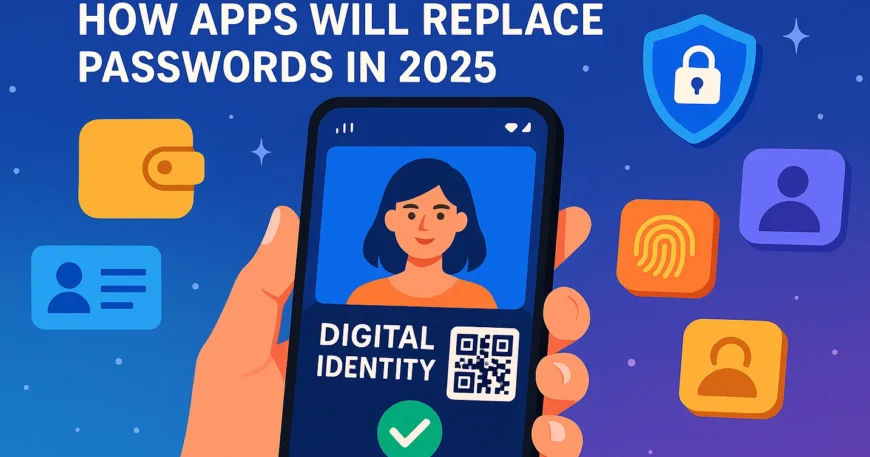Introduction
Passwords have been the weakest link in security for decades. From forgotten logins to data breaches, the flaws of password-based authentication are clear. In 2025, the world is moving toward a passwordless future, powered by digital identity wallets—secure apps that store and manage your identity credentials. For developers and businesses, this shift is about more than convenience; it’s about creating trustworthy, frictionless user experiences.
What Are Digital Identity Wallets?
A digital identity wallet is a secure mobile or web application that stores:
- Personal identification (driver’s license, passport, ID cards)
- Login credentials
- Financial details
- Health or education records
Instead of typing usernames and passwords, users simply approve authentication through their wallet, often backed by biometrics, blockchain, or zero-knowledge proofs.
Why Passwords Are Dying in 2025
- Security Breaches – Stolen or weak passwords cause 80% of cyberattacks.
- Poor UX – Users forget, reset, and reuse passwords.
- Stronger Alternatives – Biometrics, passkeys, and decentralized IDs (DIDs) are now more reliable.
- Regulatory Push – Governments are encouraging digital identity adoption for safer online ecosystems.
Benefits of Digital Identity Wallets for Apps
- Frictionless Login: One tap or biometric scan replaces passwords.
- Cross-App Compatibility: One identity wallet works across multiple apps.
- Enhanced Security: Cryptography ensures no password can be hacked or leaked.
- User Control: People decide what data to share and when.
- Global Reach: Standardized digital IDs work across borders.
Real-World Use Cases
- E-Commerce: Instant checkout with verified identity.
- Banking & Fintech: Passwordless account access with built-in fraud prevention.
- Healthcare: Secure patient records stored in one wallet.
- Travel: Digital passports streamline airport check-ins.
- Education: Verified digital certificates and diplomas.
Challenges Ahead
- User Adoption: People need to trust digital wallets with sensitive data.
- Interoperability: Ensuring wallets work across different apps and countries.
- Data Privacy: Balancing convenience with regulatory compliance (GDPR, HIPAA).
- Tech Maturity: Standards for decentralized identity are still evolving.
The Future of Identity in Apps
By the late 2020s, digital identity wallets may become as common as email addresses are today. Apps may no longer ask for passwords but instead request secure identity confirmation. For developers, building wallet-ready apps will soon be a baseline requirement, just like SSL encryption is today.
Conclusion
Digital identity wallets aren’t just a trend—they’re the foundation of the passwordless era. For app developers and businesses, preparing for this shift means focusing on security, interoperability, and user trust. Passwords are fading into history; digital identity is the future.





